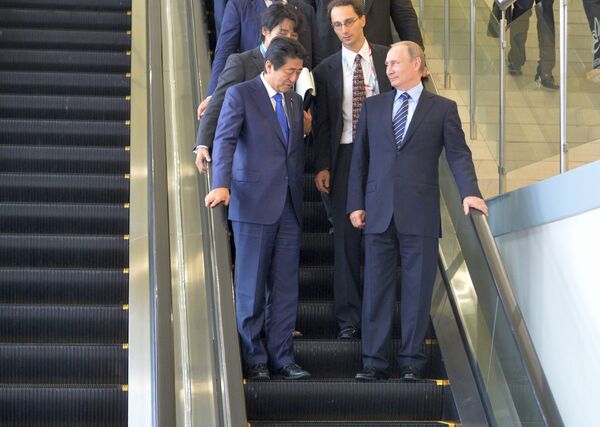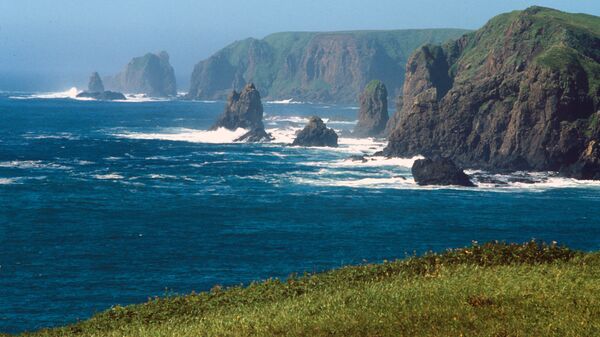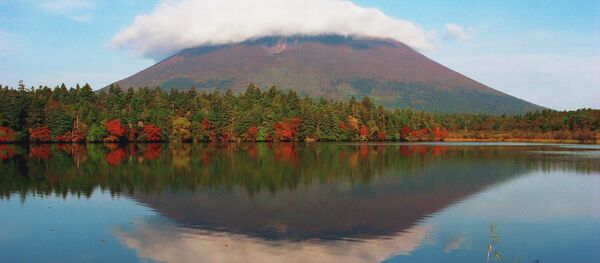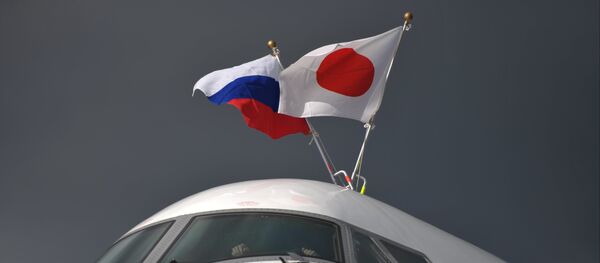He analyzed the outcome of the bilateral talks between President Putin and Japanese Prime Minister Shinzo Abe on September 2, amid the Eastern Economic Forum.
Before his summit with the Russian leader, the Japanese Prime Minister made three important moves: he “created a new ministry dedicated to economic cooperation with Russia with the powerful economy minister Hiroshige Seko as its head, named Nobuo Kishi (Abe’s own brother) as state minister of foreign affairs in charge of relations with Russia; and launched a media blitzkrieg underscoring Tokyo’ eagerness to engage Russia in major economic cooperation, notwithstanding the deadlock in the dispute over Kuril Islands,” the diplomat writes in his article for Asia Times online newspaper.

“At Vladivostok, Abe and Putin agreed to continue exchanges between defense authorities of the two countries. Abe also expressed willingness for joint drills between their maritime authorities and called for more talks between the national security advisers,” the author adds.
“Clearly, apart from economic cooperation, Abe also wishes to move forward on security cooperation with Moscow in a regional environment where there is so much latent hostility toward Japan that it desperately needs a friendly Russia. Even Russia’s neutrality vis-à-vis Japan’s core interests would be tantamount to a game changer for Tokyo,” he says.
The author explains that the above moves come amid the “near-certainty that Russia cannot and will not budge on the territorial dispute.”
Second, he refers to the recent interview of President Putin with Bloomberg where the Russian leader made it clear that Russia does not “trade its territories.”
However, the author notes, “even if the territorial talks come to nothing, Japan benefits out of improved relations with Russia that may open up economic opportunities and a favorable dimension to the regional power dynamic.”
Russia Winning Poker Game With US: Its Policy to Isolate Moscow ‘Not Going Well’
The diplomat also points out that the main outcome of the summit between the two leaders “has been, well, that they will meet again in December.”
The announcement is even more important due to the fact that the previously announced visit had been cancelled under US pressure.
“If in 2014 Tokyo had backtracked under US pressure on the invitation to Putin for a visit that year to Japan, there can be no doubt whatsoever that Abe will exercise strategic autonomy and host the Russian leader in December,” he says.
“Abe clearly sees the normalization of Japan-Russia relations as one of the major diplomatic achievements that he wants to attach his name to,” says its analytical article on the outcome of the Prime Minister’s talks with the Russian leader.
However, the articles says, Abe’s move also “runs the risk of creating discomfort” in Tokyo’s relationship with Washington.
The Obama administration, it notes, has “maintained a firm stance” toward Russia since its reunification with Crimea, “imposing stiff economic sanctions together with its European allies.”
Hence the above developments and the thaw in relations between Japan and Russia might suggest that the US is failing to isolate Russia.
“Engaging Putin at this time, particularly on the economic front, will go directly against US efforts to isolate Russia, to pressure Moscow and deter it from resorting to further aggressive behavior,” the website says.
MK Bhadrakumar also notes that “the US policy to isolate Russia is not going entirely well.”
Thus, he suggests, Russia may be “winning the poker game" with the US and with Japan over Kuril islands.





